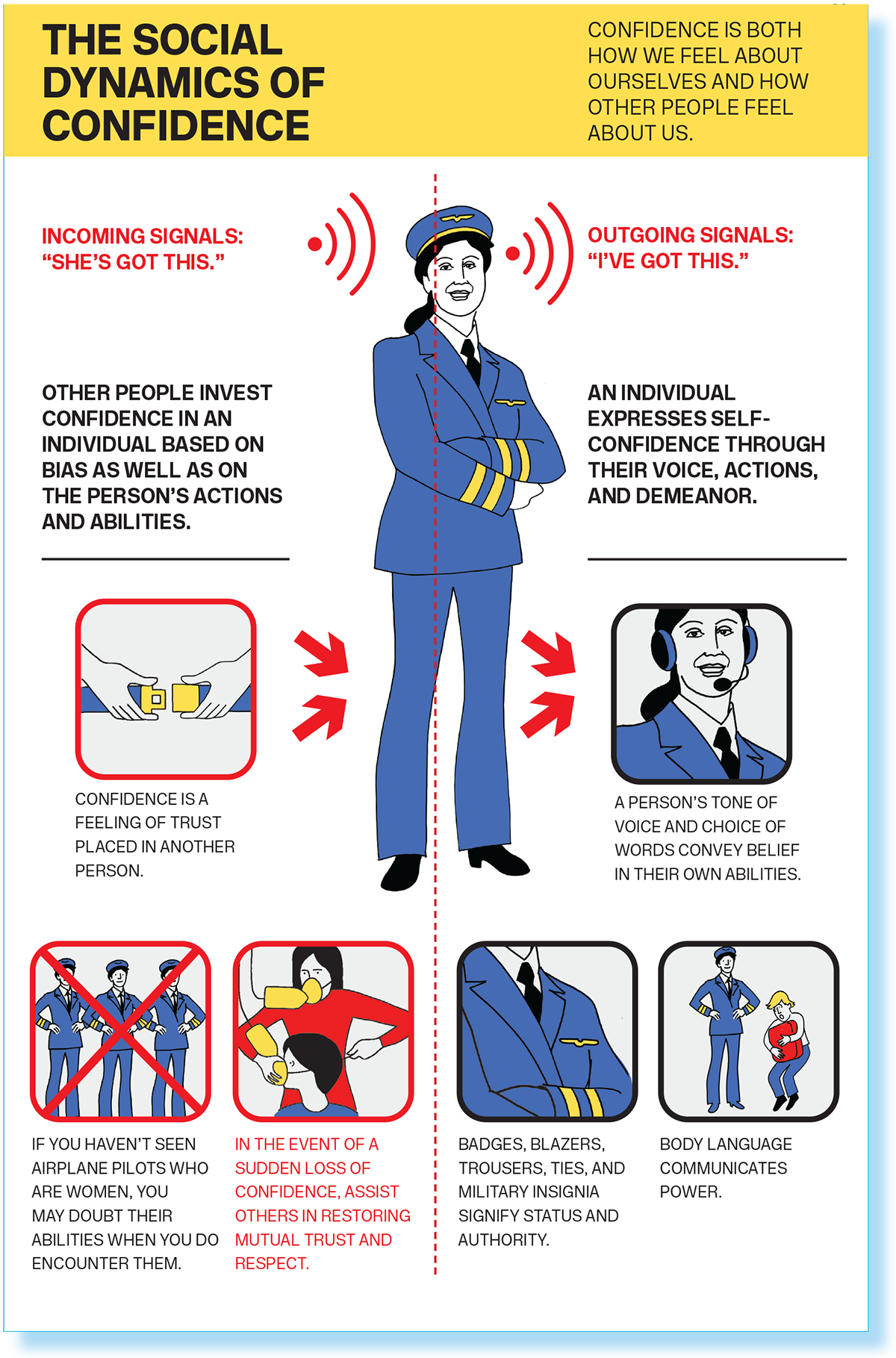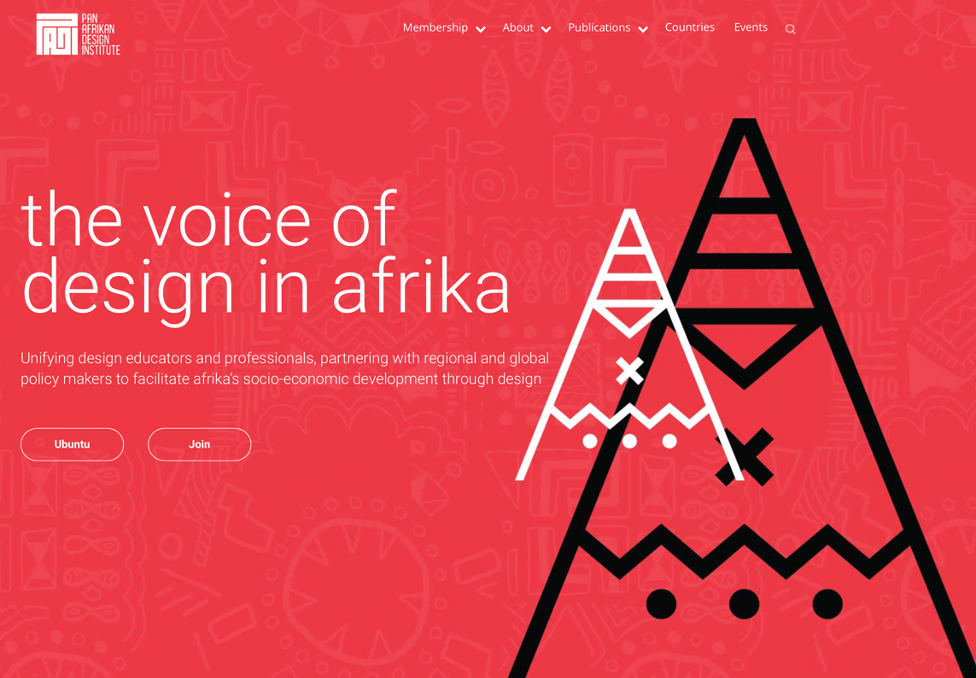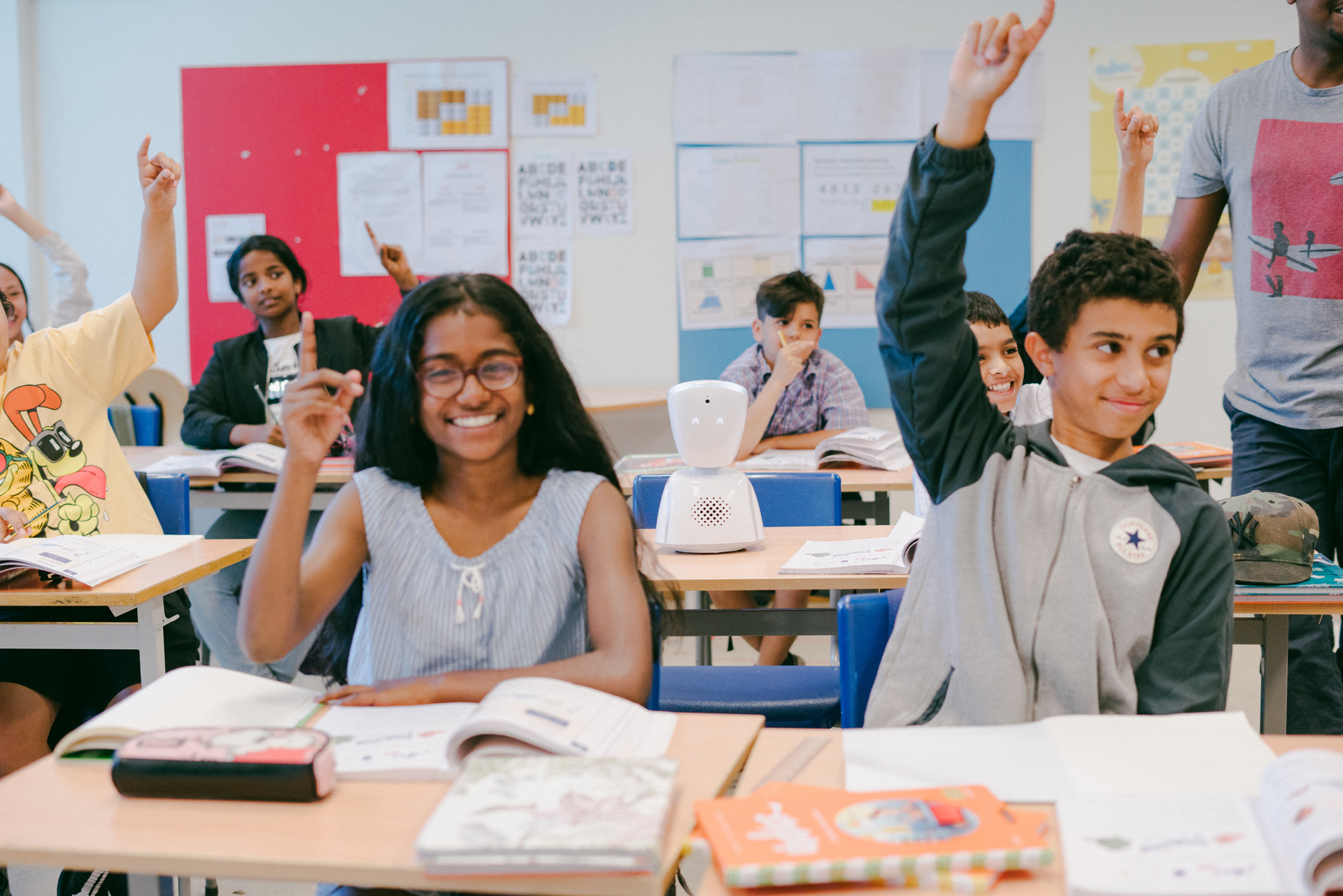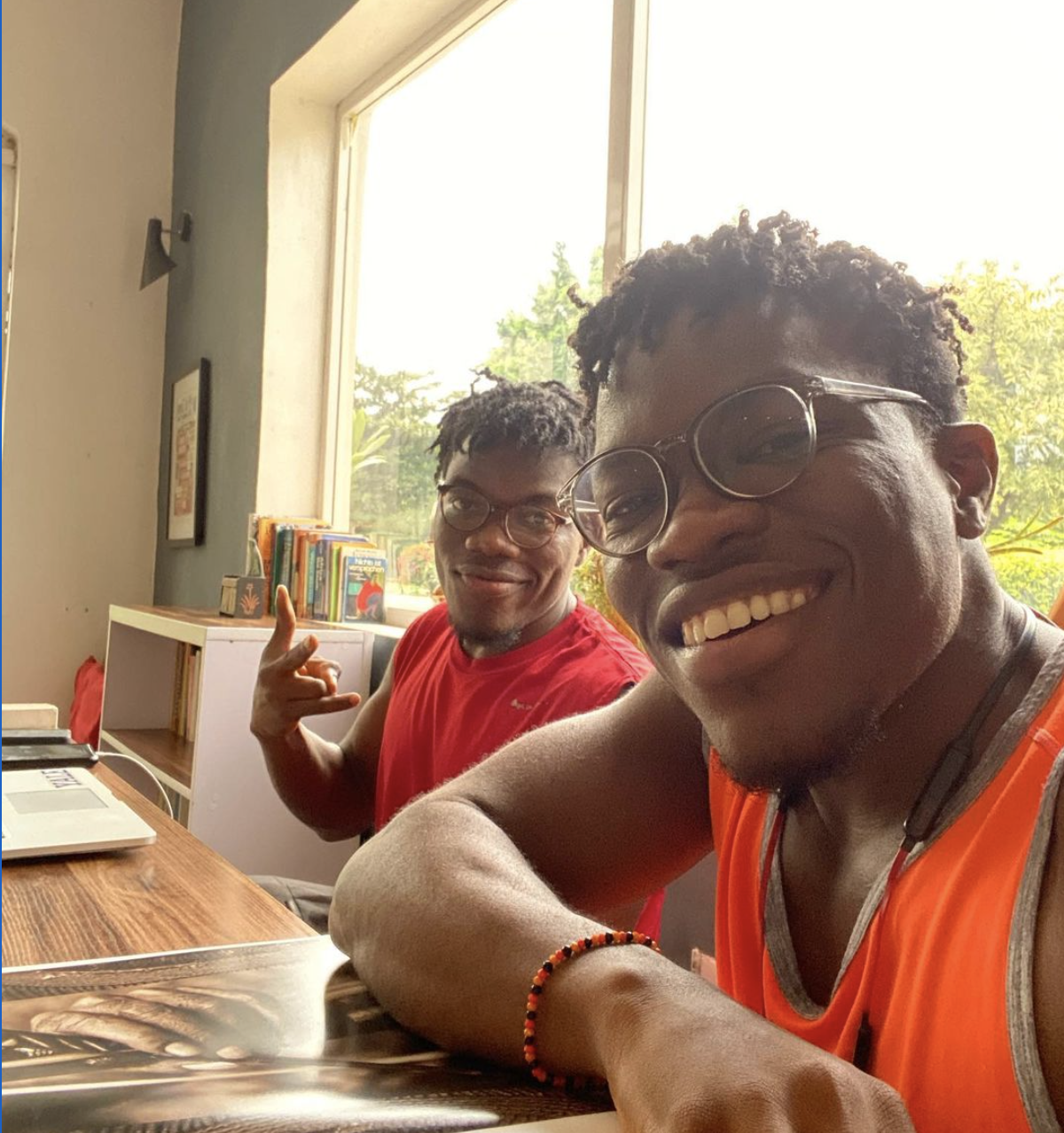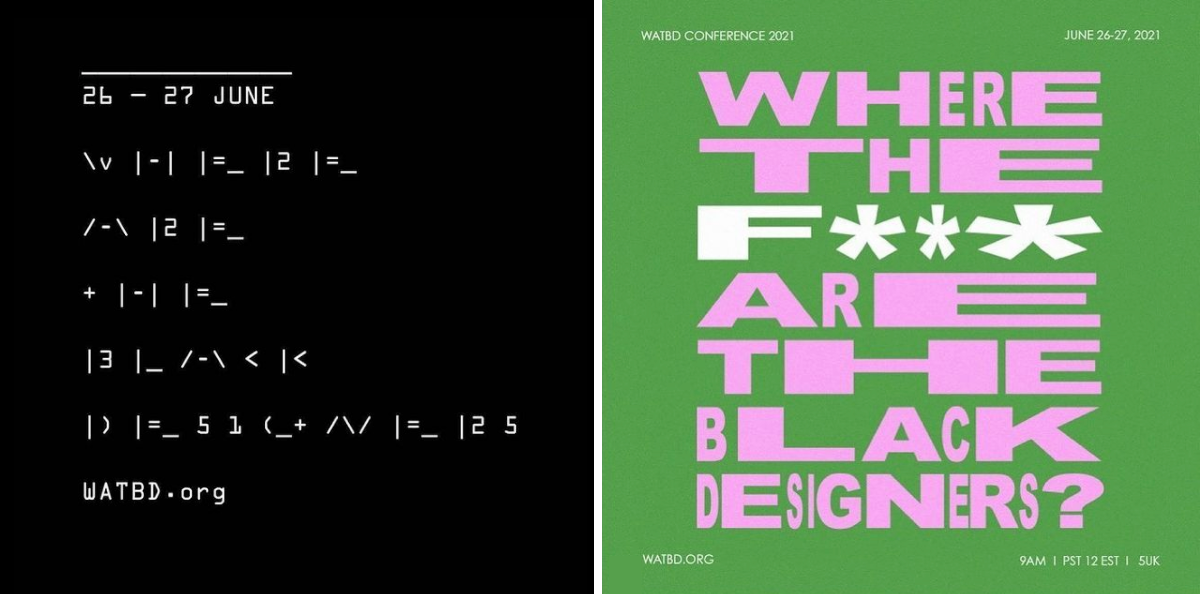
June 24, 2021
Terms of Service: June 2021
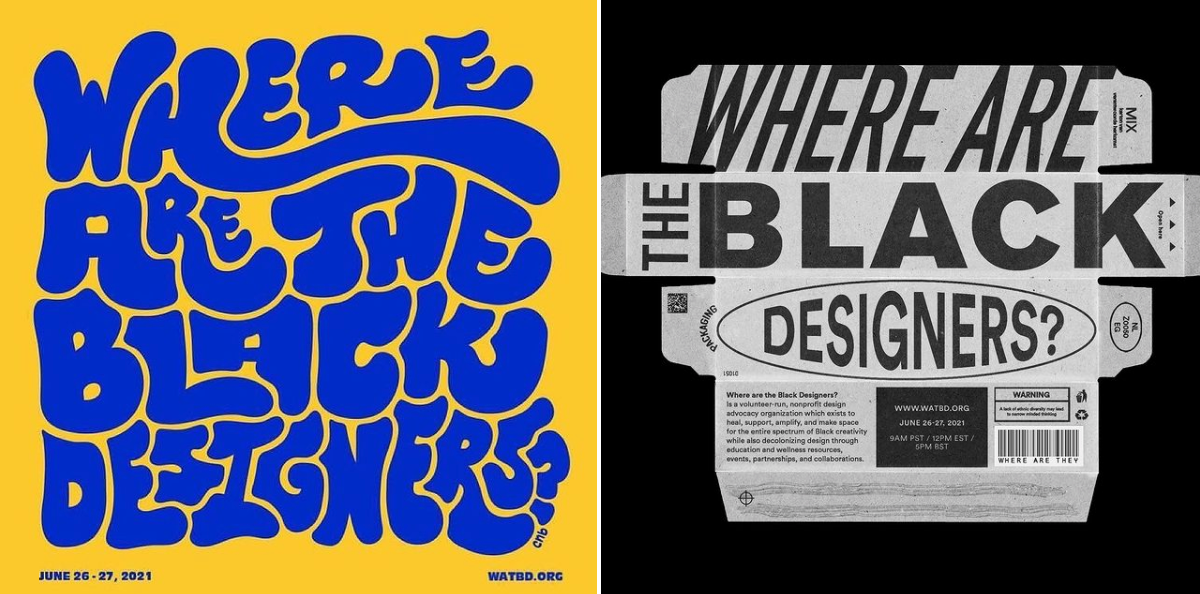
WATBD held a poster competition prior to the 2021 conference, which you can see on their Instagram. LEFT: Submission by @cnb.creative who wants to ask the tech and creative industry — Where are the black designers?. RIGHT: Submission by @seanvalies who wants to ask the packaging industry — Where are the black designers?.
Last summer, Mitzi Okou and Garrett Albury founded Where Are The Black Designers and launched a one-day virtual conference that attracted tens of thousands of attendees. Their team and outreach have increased significantly over the past year, and their second conference takes place this coming weekend. You can register here (it’s free) and in the meantime, we are pleased to share this interview with some of their members.
Design Observer: More than twenty-five years ago, Cheryl Miller wrote about the lack of diversity in the design field, and despite many other voices calling for better representation, little had changed by last summer. What sorts of major (or minor) shifts have you witnessed since then? What has been a positive shift? What has disappointed you?
Ritesh Gupta, Co-Communications Director
Positive: Organizations like ours, D2D, Black Designers Ignite, and The State of Black Design, among others, have grown significantly in terms of memberships, views, and visibility.
Negative: There are still not enough Black folx being hired.
Katie Beymer, Co-Communications Director
Positive: More intentional hiring and recruiting.
Negative: Agencies and companies not following through on equity and DEI initiatives or benchmarks, and there’s been no real movement on equal wages.
Roshannah Bagley, Marketing & Creative Partnerships Director
Positive: Diverse talent seems now to be seen as an imperative and integral part of businesses and is therefore not as optional.
Negative: Although support and action are increasingly happening, it’s still mostly reactive because companies need to be “seen” to be doing the work.
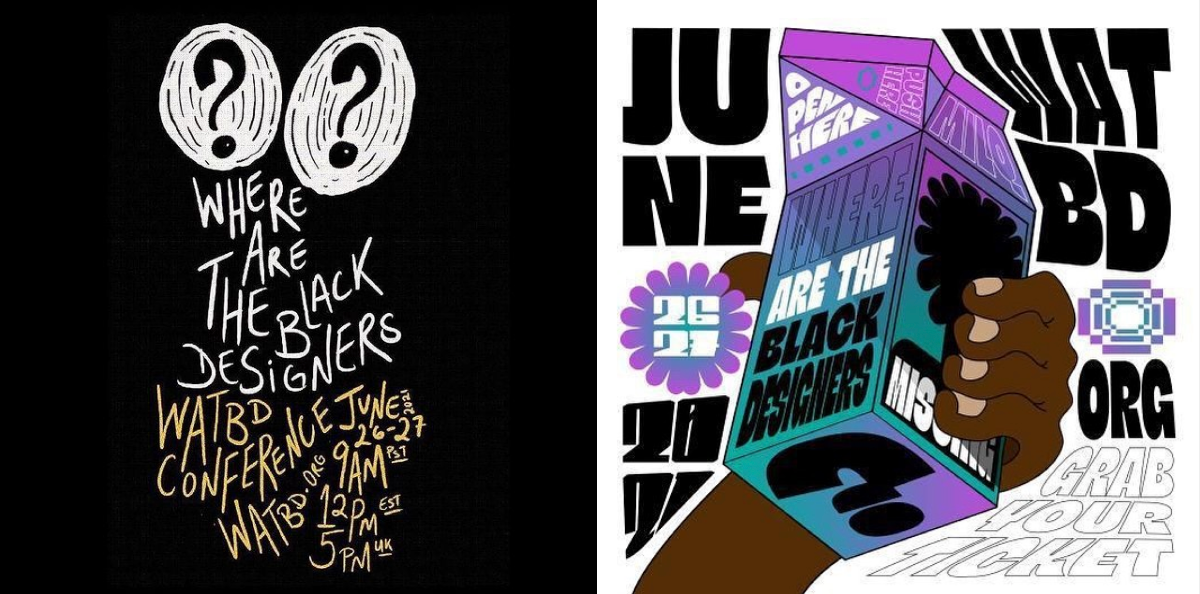
LEFT: Submission by @dandandoodling.. RIGHT: Submission by @_giantest. Both of whom want to ask the tech and creative industry — Where are the black designers? @wherearetheblackdesigners for more submissions to the WATBD poster contest.
Design Observer: Last year’s WATBD conference came together quickly, but the planning for this year has probably been very different. Can you speak to the challenges of moving—from a small, grassroots movement to a national, non-profit organization—in such a short time? What surprised you? What was particularly challenging—or rewarding—about this shift in scale, and these new dimensions?
Garrett Albury, Co-Founder: I’d say we’re still a tight-knit small team. There are still a lot of organizational growing pains (like waiting on the non-profit paperwork to be official) but I think the most important part is that this community of Black designers and allies has sustained itself for a year and shows no signs of stopping. If WATBD had remained a two-person project, I’m not sure our progress would be as strong. The most rewarding part of this growth is getting to work with passionate designers and community members, as well as like-minded organizations.
Ritesh Gupta: In the beginning, only two people (Mitzi and Garrett) did pretty much everything. Now there are more admins and volunteers, so the challenge shifts to coordinating and delegating; corporate sponsorships have, fortunately, been both efficient and effective.
Katie Beymer: More volunteers and admins helping out and leveraging our vast networks to gain awareness, support, and securing future job pipelines for the community. We’re able to be more intentional with providing information and opportunities for people. Hopefully, this time around we can gain accountability with the partners and agencies who are supporting us, and keep them on track with the work we’re trying to do.
Design Observer: Event planning is challenging even without a pandemic, but ideally, gatherings invite us to explore new kinds of dialogue and opportunities for deeper exchange. Can you tell us a bit about the conversations you are looking forward to this year? Who will be speaking, and why?
Ritesh Gupta: All of them! I’m moderating the “Violent vs. Non-violent Allyship” panel which should be incredible, particularly for the allies in the audience. I’m also excited by our “Recruiting as the Limitation and Expansion of Diversity” panel, since getting a job at a safe, supportive, equitable organization (and navigating the recruiting process to do so) is still top of mind for many young, vulnerable designers.
Roshannah Bagley: All of them! I’m excited to see how the conference has expanded further as it’ll be over two days this year. We also have more of an international presence, both in terms of speakers and attendees and variation in discipline and focus.
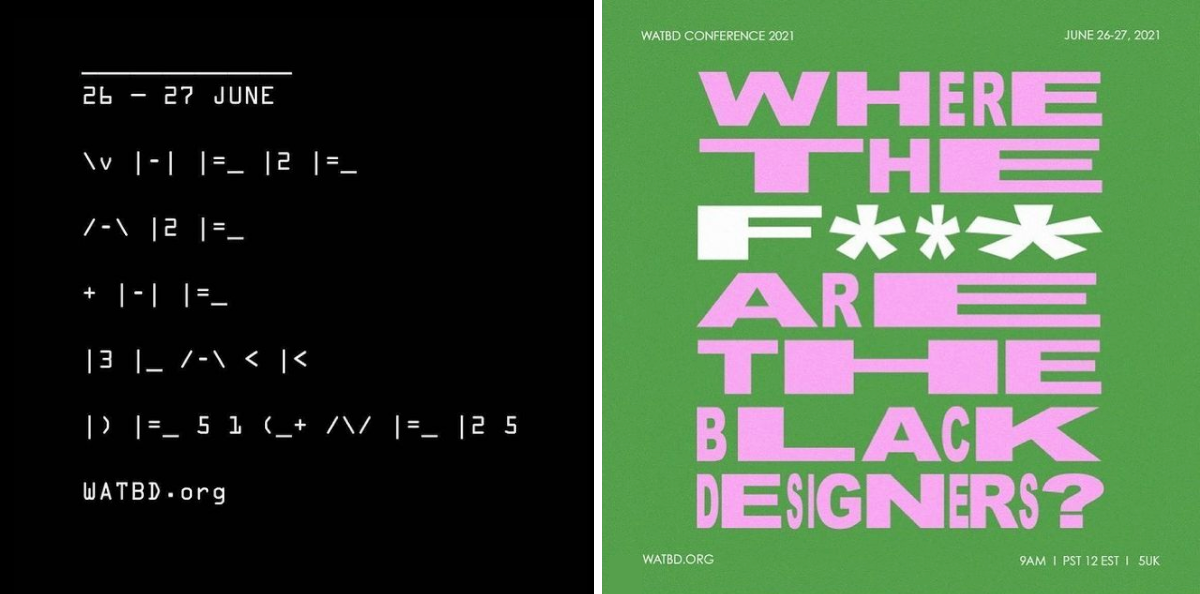
LEFT: Submission by @emcray who wants to ask high school guidance counselors — Where are the black designers?. RIGHT: Submission by @yerawizardmeg who wants to ask the tech and creative industry — Where are the black designers?. @wherearetheblackdesigners for more submissions to the WATBD poster contest.
Design Observer: Many people know about WATBD because of your event last year, but not everyone knows about your ongoing initiatives to promote diversity in design education (and in the workplace) and to connect people of color working across the creative industries. Can you tell us a bit more about this work?
Ritesh Gupta:
Below, a few of our enduring initiatives:
- Connecting designers to organizations to learn more about them
- Supporting designers through our Job Board
- Launching a popular speaker series to show that there are successful Black folx in this industry and other Black folx can do it, too! They also help to answer attendees’ burning questions
Katie Beymer:
- Working directly with recruiting/HR individuals across the globe to get WATBD community members into paid positions, and utilizing job board for this as well
- Sharing WATBD with other designers and agencies and inviting them to our Slack channel to find individuals or identify contract work or other projects
- Setting up panels or discussions at agencies and companies to raise awareness about how creatives across all disciplines can be heard at their places of work, how they can speak up about what work needs yet to be done, and so on.
- Creating a mentorship program to connect WATBD members with mentors, thus furthering their opportunities for education and success.
Roshannah Bagley:
- We’ve revised our job process to allow for an easier application experience and greater visibility.
- We’ve partnered with companies like Working Not Working and agency Something™ to champion our creators, increase their visibility, and provide a the platform to showcase their talents.
- We’ve forged relationships with hiring departments at technology, media, and design companies across the country.
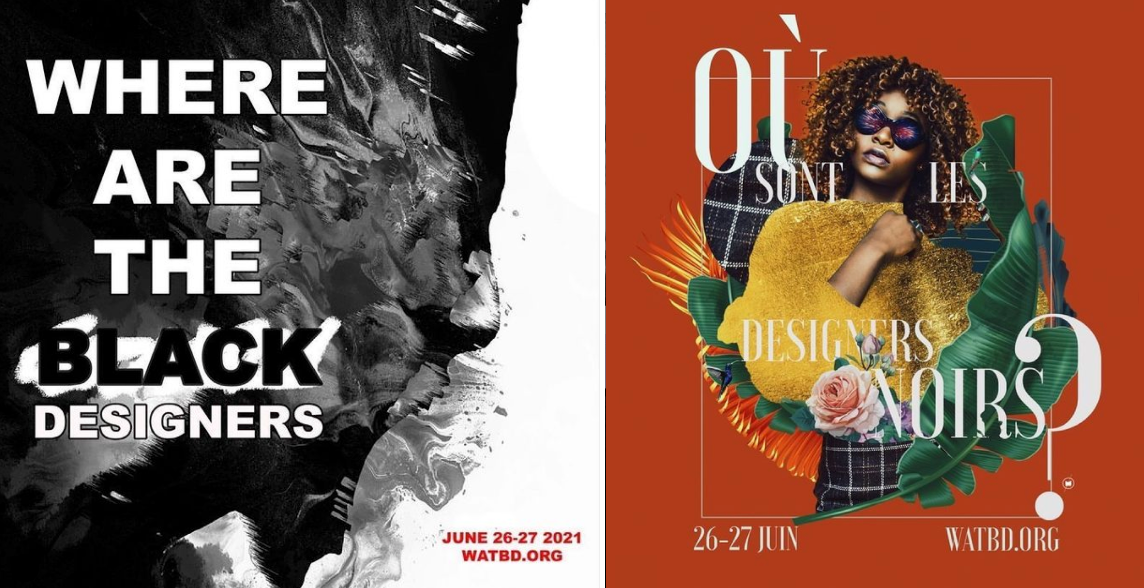
LEFT: Submission by @design_by_deuce who wants to ask @costco — Where are the black designers?. RIGHT: Submission by @marvelgd who wants to ask in-house recruiters — Where are the black designers?. @wherearetheblackdesigners for more submissions to the WATBD poster contest.
Design Observer: Finally, we started this monthly column, Terms of Service to shed light on practitioners and practices that deserve our attention, but also to think about enlarging the scope and substance of our conversations. What are you doing to make things better for people besides yourselves—and how can we, and our readers, help you to do so?
Ritesh Gupta: What we are doing to make things better? This is easy to answer since it’s right there in our mission statement, but it’s going to take a lot of work to accomplish.
Our mission is: We exist to heal, support, amplify, and make space for the entire spectrum of Black creativity while also decolonizing design through education and wellness resources, events, partnerships, and collaborations. Additionally, by connecting designers, educators, and creative leaders, we host a dialogue about change, both in and out of the design industry through our annual conference.
Here are some things that individuals, groups, and companies can take to support our efforts:
- Donate money to us to help us continue to do the work
- Share our work on your social media platforms, in Slack, and via email to friends, family, and coworkers.
- Email us if you have an idea on what you’d like to see us do! [email protected]
Katie Beymer:
- Join our Slack space and hire directly from there, or post all job opportunties to the job board, to hire from there.
- Initiate conversations at your place of work to challenge the current norm and to encourage leadership to make changes that increase opportunity and awareness.
- Destigmatize wage conversations, and encourage companies to make hiring practices and salaries both transparent and equal.
- Host organizations like WATBD or D2D at your company to educate on an array of topics, including but not limited to allyship, wage equality, and fair representation.
- Pair with an organization like https://www.emergingleaderspdx.org/ to bring on interns; pay them and offer full-time positions at the end if they’re available.
- Promote Black designers from within and offer clear and attainable growth opportunities and leadership positions.
- Become a better listener, and help others become better listeners, too.
Observed
View all
Observed
By The Editors
Recent Posts
A new alphabet for a shared lived experience Love Letter to a Garden and 20 years of Design Matters with Debbie Millman ‘The conscience of this country’: How filmmakers are documenting resistance in the age of censorship Redesigning the Spice Trade: Talking Turmeric and Tariffs with Diaspora Co.’s Sana Javeri Kadri
 Design Observer is edited by Michael Bierut and Jessica Helfand, with assistance from Betsy Vardell, Elizabeth Deverereaux, Chappell Ellison and Joanna Radin.
Design Observer is edited by Michael Bierut and Jessica Helfand, with assistance from Betsy Vardell, Elizabeth Deverereaux, Chappell Ellison and Joanna Radin.
